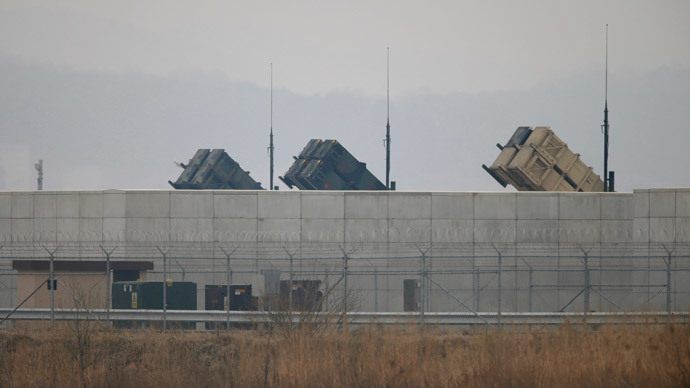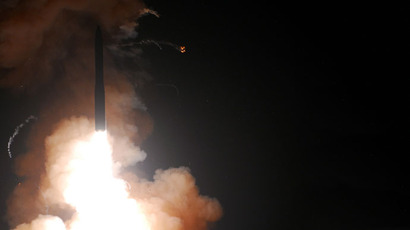US missile defense system faces further costs and delays due to failures - report

A report released this week by the United States Government Accountability Office suggests that the Pentagon’s costly missile defense program could soon become much more expensive due to recent delays and other obstacles.
The federal government watchdog group released their report on Tuesday this week, and in it they wrote that the Missile Defense Agency, or MDA, accomplished only “mixed progress” in fiscal year 2013.
Although the GAO didn’t shy away from acknowledging the MDA’s achievements from last year, the report’s authors wrote that “development challenges” plagued two of the agency’s programs in particular, including the Aegis Ballistic Missile Defense System (BMD) and the Ground-based Midcourse Defense system (GMD), spawning significant setbacks for the MDA as a result.
The government has spent $98 billion since 2002 to advance its missile defense system, the GAO acknowledged, and an additional $38 billion is expected to be spent on it between now and the end of fiscal year 2018. Citing a handful of problems, however, the GAO now expects that added costs could soon be incurred to further skyrocket the final price tag for the Pentagon.
With regards to the BMD system, the report says that the program will move forward through at least fiscal year 2015, despite encountering a failure during testing last year that has yet to be identified. And with respect to the GMD system, the GAO said a successful non-intercept flight test of its upgraded interceptor conducted last year came nearly seven years behind schedule.
“Until this upgraded interceptor is demonstrated in an intercept test, expected to be conducted in the third quarter of fiscal year 2014, manufacturing and deliveries remain on hold,” the report’s authors wrote, suggesting further delays are likely to do more to hurt Uncle Sam’s pocketbook. According to the GAO, the cause of that failure is also yet to be determined.
The MDA may in fact be “improving the quality and comprehensiveness of the cost estimates that support its resource baselines,” the GAO acknowledged elsewhere in their report, but this week’s findings claims to have, for the fourth year in a row, determined that those cost estimates made by the Pentagon are “unreliable.”
“Congress has recently required MDA to include these costs in future acquisition baselines which may improve transparency. Second, MDA's schedule baselines are presented in a way that makes it difficult to assess progress,” the report reads in part. According to the GAO’s findings, though, the MDA has time and time again failed to stay on track with previously reported schedule baselines, instead suffering from significant delays that have in turn affected, according to the group, how decision makers evaluate the missile defense program.
“Until MDA improves the quality and comprehensiveness of its cost estimates and the content of its schedule information, its baselines will not be useful for decision makers to gauge progress,” the GAO wrote.
Reuters journalist Andrea Shalal wrote that continued problems, including the GMD system managed by defense contractor Boeing, “could drive the costs of US missile defense system even higher in coming years,” well above the millions that are already earmarked.
That isn’t to say that this week’s report is brimming with bad news, though. Elsewhere in the study, the GAO said that the estimated acquisition cost of Lockheed Martin’s famed F-35 fighter jet program has dropped $11.5 billion during the last year. Nevertheless, it is expected to be the Pentagon’s most costly weapons endeavor ever by the time all is said and done. According to ABC News, the latest price tag for that program is an estimated $332 billion.














